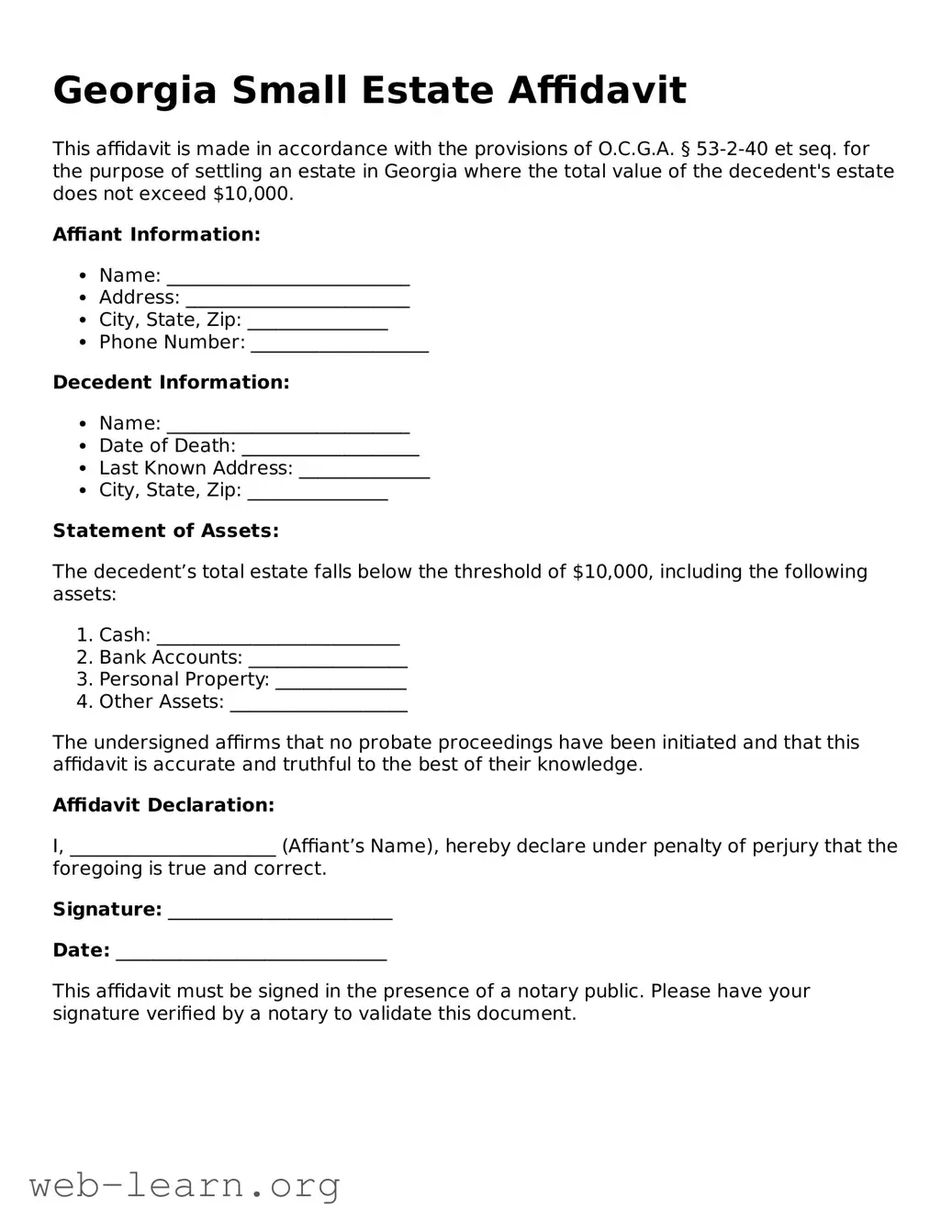Georgia Small Estate Affidavit
This affidavit is made in accordance with the provisions of O.C.G.A. § 53-2-40 et seq. for the purpose of settling an estate in Georgia where the total value of the decedent's estate does not exceed $10,000.
Affiant Information:
- Name: __________________________
- Address: ________________________
- City, State, Zip: _______________
- Phone Number: ___________________
Decedent Information:
- Name: __________________________
- Date of Death: ___________________
- Last Known Address: ______________
- City, State, Zip: _______________
Statement of Assets:
The decedent’s total estate falls below the threshold of $10,000, including the following assets:
- Cash: __________________________
- Bank Accounts: _________________
- Personal Property: ______________
- Other Assets: ___________________
The undersigned affirms that no probate proceedings have been initiated and that this affidavit is accurate and truthful to the best of their knowledge.
Affidavit Declaration:
I, ______________________ (Affiant’s Name), hereby declare under penalty of perjury that the foregoing is true and correct.
Signature: ________________________
Date: _____________________________
This affidavit must be signed in the presence of a notary public. Please have your signature verified by a notary to validate this document.
